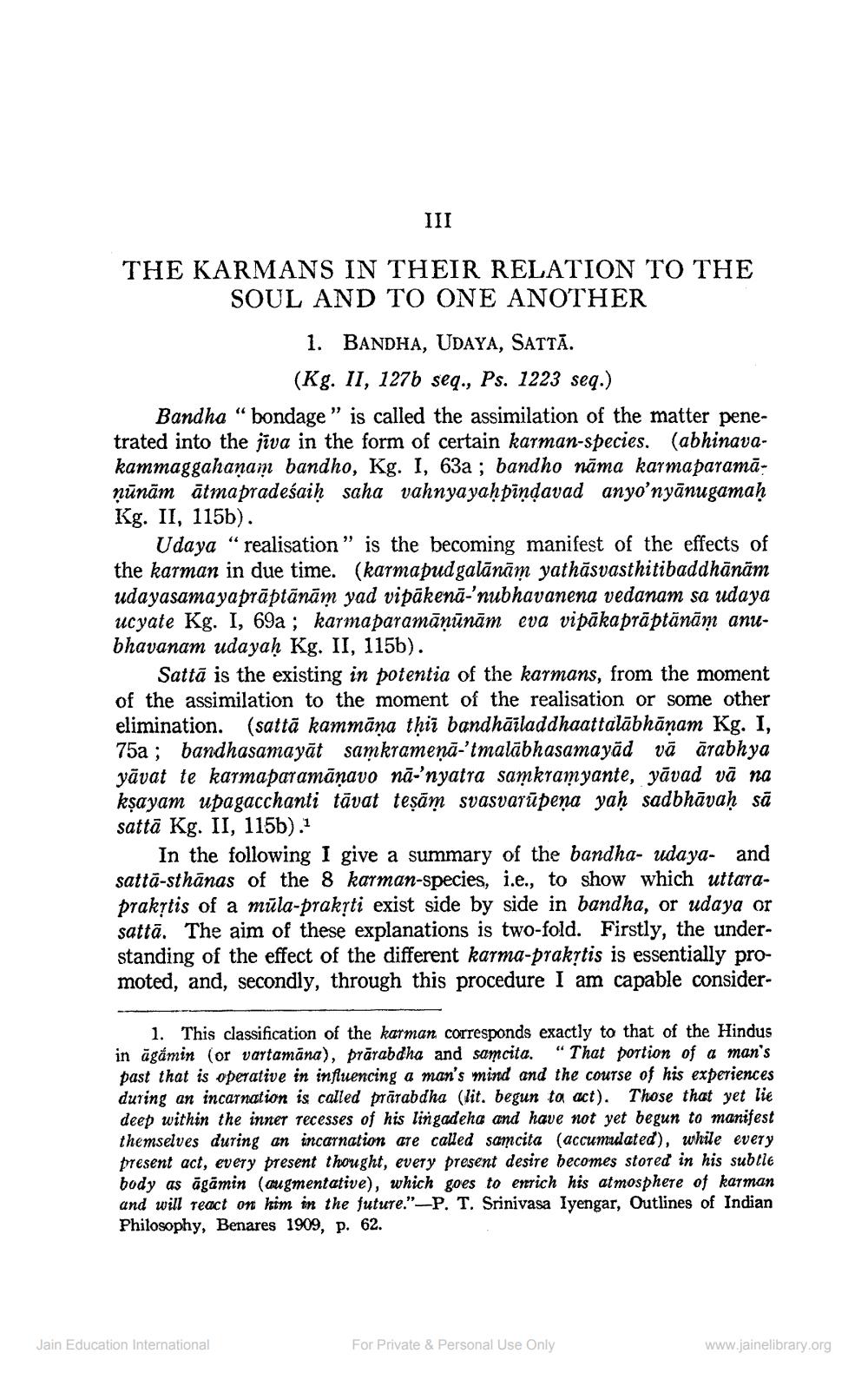________________
III
THE KARMANS IN THEIR RELATION TO THE
SOUL AND TO ONE ANOTHER
1. BANDHA, UDAYA, SATTĀ.
(Kg. II, 127b seq., Ps. 1223 seq.) Bandha " bondage " is called the assimilation of the matter penetrated into the jīva in the form of certain karman-species. (abhinavakammaggahanam bandho, Kg. 1, 63a ; bandho nāma karmaparamāņūnām ātmapradeśaih saha vahnyayahpindavad anyo'nyānugamah Kg. II, 115b).
Udaya “realisation” is the becoming manifest of the effects of the karman in due time. (karmapud galānām yathāsvasthitibaddhānām udayasamayaprāptānām yad vipākenā-'nubhavanena vedanam sa udaya ucyate Kg. I, 69a ; karmaparamāṇūnām eva vipäkaprāptänām anubhavanam udayaḥ Kg. II, 115b).
Sattā is the existing in potentia of the karmans, from the moment of the assimilation to the moment of the realisation or some other elimination. (sattā kammāna thiż bandhāiladdhaattalābhānam Kg. I, 75a; bandhasamayāt samkramenā-'tmalābhasamayād vā ārabhya yävat te karmaparamāņavo nā-'nyatra samkramyante, yāvad vā na kşayam upagacchanti tāvat tesām svasvarūpena yaḥ sadbhāvaḥ sā sattā Kg. II, 115b).1
In the following I give a summary of the bandha- udaya- and sattă-sthānas of the 8 karman-species, i.e., to show which uttaraprakītis of a mūla-praksti exist side by side in bandha, or udaya or sattā. The aim of these explanations is two-fold. Firstly, the understanding of the effect of the different karma-prakstis is essentially promoted, and, secondly, through this procedure I am capable consider
1. This classification of the karman corresponds exactly to that of the Hindus in āgåmin (or vartamāna), prārabdha and samcita. "That portion of a man's past that is operative in influencing a man's mind and the course of his experiences during an incarnation is called prārabdha (lit. begun to act). Those that yet lie deep within the inner recesses of his liñgadeha and have not yet begun to manifest themselves during an incarnation are called samcita (accumulated), while every present act, every present thought, every present desire becomes stored in his subtle body as āgāmin (augmentative), which goes to enrich his atmosphere of karman and will teact on him in the future.”—P. T. Srinivasa Iyengar, Outlines of Indian Philosophy, Benares 1909, p. 62.
Jain Education International
For Private & Personal Use Only
www.jainelibrary.org




